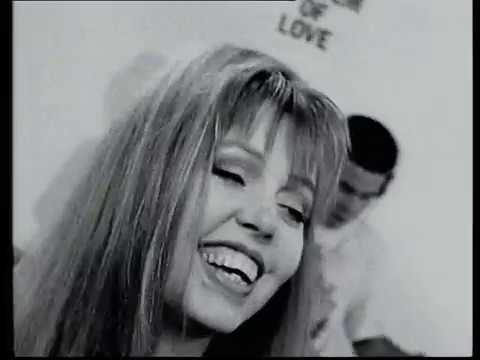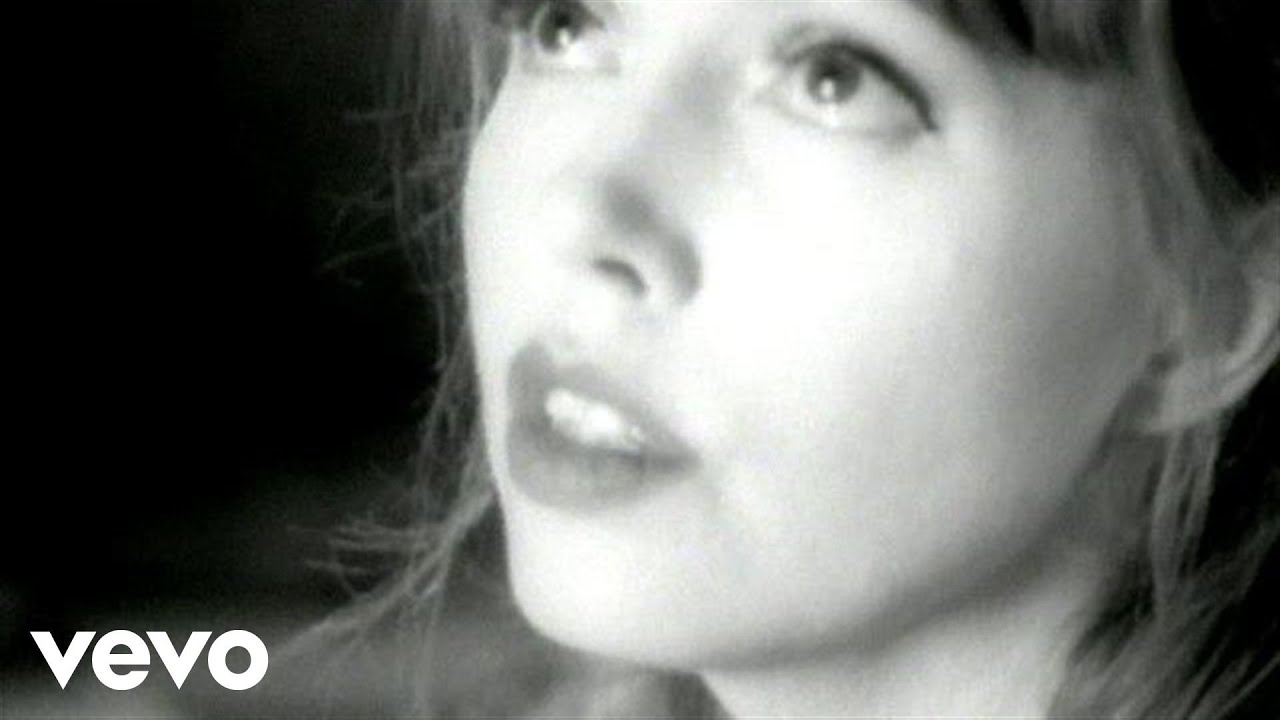I started listening to Anita Lane by accident, during one of those heartbreaks so painful you become physically unwell. I spent my days incapacitated in the bath, repeatedly listening to Nick Cave & The Bad Seeds’ The Boatman’s Call and sobbing. It was during one of those sessions of weeping that the cruel murmuring of ‘Green Eyes’ segued into the Spotify album radio.
The first song that played seemed pleasant enough, nothing special at first, but as the wistful electric guitar filled the room pre-chorus, I stopped crying, and listened deeper. Then I heard the dainty voice with the whisky edge sing, “Love is cruel / Love is truly absurd / Jesus almost got me / I don’t know how many prayers he overheard." The words were so uncomfortably fitting to my situation that I thought for a moment that someone might be communicating with me from another world. I jumped out of the bath, wiping my tears and clicked on the album’s title, Dirty Pearl, so I could remember to play it in full.
I’m sure I’m not alone in finding in Nick Cave’s music a great comfort in a time of romantic pain. Yet there was an element of it that Cave could never fully understand and help me through: the cruelty I had experienced at the hands of men. Lane not only validated that pain but seemed to show me a way out of it, that there was a way to live with it beyond lying around feeling sorry for myself.
Of course, it hadn’t been a coincidence. The mysterious torch singer had in-fact been Cave’s longtime girlfriend from 1977 to the mid 80s. And not only that but it seemed that Lane had helped to shape Cave’s identity as a songwriter. She had been there during the genesis of both the Birthday Party and the Bad Seeds, co-writing lyrics for ‘A Dead Song’, ‘Dead John’, ’Kiss Me Black’ and ‘From Her to Eternity’, and even writing all the lyrics for ‘Stranger Than Kindness’ (a song Cave is so in awe of that he named his new book, a retrospective of his work, after it.)
After Lane’s association with the Bad Seeds ended in the mid 80s, her work in music became far and few between. She provided vocals on several Gudrun Gut’s tracks, Barry Adamson’s cover of ‘These Boots are Made For Walkin’ and most notably, Mick Harvey’s Serge Gainsbourg tribute albums, Intoxicated Man and Pink Elephants. But after the flop of her second solo album Sex O’Clock in 2001 she faded into near obscurity and moved to Byron Bay, Australia, where she devoted her time to looking after her children.
Some will be quick to point fingers at Cave and presume that Lane’s career was overshadowed by her association with him, though he did refer to her as a “limitless creative spirit” in one of his Red Hand Files letters. Instead, I have always thought that Lane’s lack of success had more to do with time – and that she was ahead of it.
Lane’s first solo album Dirty Pearl was released in 1993, a time in popular music when female singer-songwriters were beginning to reclaim the sexual narrative. In 1992, Madonna’s masterpiece Erotica saw the singer make her transition from babydoll sexuality to full blown dominatrix. When Alanis Morissette and Fiona Apple arrived in the charts a few years later, their angst-tinged tunes proved that women could be as aggressive and assertive as men when it came to matters of passion.
Dirty Pearl was aligned with this sexual revolution but also separate from it. While Lane’s work explored similar themes, namely lust and love, she was much more focused on the spiritual, demonstrating how sex and romantic relationships could help develop a knowledge of an individual’s truest self. Like Morissette, Madonna and Apple her music was a middle finger to the patriarchy, but unlike them, Lane refused to deny her stereotypical feminine qualities in doing so, instead exploring how her capacity to experience sex and love from a female viewpoint led to richer experiences.
Dirty Pearl is a compilation made up of Lane’s various collaborations with the Birthday Party, Bad Seeds and Einstürzende Neubauten between 1982 amd 1993. Preceded by 1988 EP Dirty Sings, the album includes all of the songs previously featured on that release, in addition to a handful of newer work, with the exception of ‘The Fullness Of His Coming’ which appears to be from the Birthday Party era.
While ‘odds and ends collection’ is a fair description of the album, since it was put together in a rather higgledy-piggledy fashion, it undermines the release’s strong, overarching theme. Taking in death, love and sex – unsurprisingly Nick Cave-esque preoccupations – the album explores the psychological impact of heartbreak on the feminine self. Or more directly put, how love breaks women down so they can be reborn. Dirty Pearl deals directly with the idea of female fragility, a tricky topic that would be popularised by Lana Del Rey in her debut, Born To Die, two decades later. Lane explained her reasons for wanting to make a record about this very idea to journalist Ian Johnston, who interviewed her as part of his research for Bad Seed: The Biography of Nick Cave. Here she is speaking about her mindset during the recording of Dirty Pearl’s predecessor, Dirty Sings: "I did tell someone once about why I made that record but they were shocked and didn’t print it. It was to do with being really desperately unhappy and wanting to die. I knew I had something. I told Daniel [Miller, Mute Records boss] I’ve got this life and I don’t know what to do with it, I almost don’t even want it, but I’m really talented so use me. I didn’t want to be on a pedestal on the record. I wanted to talk to other girls. I kind of wanted to glorify insecurity rather than being confident and successful. I wanted some kind of equality between the emotions that are raised up for people to look at, to show other emotions that are equally as valid as confidence and control. I felt that I was going to die and I wanted to leave something behind, as a suicide note I guess."
It’s interesting that Lane should use the word ‘glorify’ here, because on Dirty Pearl, it never felt like she was doing that. Unlike Del Ray, who was given to victimising herself in her romantic relationships and making it look all sparkly and glamorous (and I say this as a big Del Ray fan), Lane considered the greater implications of how female fragility plays out in romantic relationships with a scholarly awareness, allowing herself (and her listeners) to find a way out of the darkness and towards emotional strength.
On one hand, the album addresses the hopelessness that many emotionally fragile women feel when they are younger and experiencing their first heartbreak. On ‘If I Should Die’ she takes on the role of an Ophelia-esque martyr, the cruelty of her lover – who seems to have now found another girl – making her feel that death may be the only option, “And if you made her heart beat faster / Steal from her just one throb, just one throb / Open my vein” she murmurs over a haunting horror movie piano. To the insensitive, tracks like this may seem emotionally over-blown and borderline self indulgent, but they are a true reflection of that emotion, broken and beautiful and young and lying on the floor. For the more tender hearted and fragile among us, the leaving of your first love can make you want to die.
But what’s so refreshing is that Lane doesn’t just leave these darker tracks to wallow on and on forever, showing no way out for the emotionally fragile woman. Instead, she uses them to represent the initial emotional death, which will eventually lead to a rebirth in the form of emotional self-sufficiency and knowledge. On ‘The World’s A Girl’ and ‘Jesus Almost Got Me’ – both recorded a few years after ‘If I Should Die’ and therefore present a more mature perspective – Lane reflects upon the romantic cruelty she has experienced in past relationships and uses it as a way of finding inner strength. On ‘The World’s A Girl’ Lane recounts the cruel words and actions of a previous lover (“You said the world’s a girl / And I’m taking her apart / And when I cried you said / Beggar girl, laugh / When my protests went wild / You brushed me aside / Like the finger of a child”), but instead of allowing them to hurt her she counteracts this by leaning into the feminine power of mother nature (reflected by the etherealness of the dainty piano and sitar and the song’s title) and finds her inner strength. Contrastingly, on ‘Jesus Almost Got Me’, she reflects upon how the intense highs and lows of romance have allowed her to live on a deeper emotional level and ultimately love more deeply than others, seeing her partner as “The hand of the man that stilled the water / The hand that calmed the sea” – Christ himself. Subsequently, in these songs, she subverts the idea that a stereotypically feminine experience of sexual love is one of passivity, where a guy hurting you means you have to sit at home on your chaise lounge weeping into your cushions. Instead, she shows how romantic love can allow a more emotionally fragile woman to not only know herself better – since she will experience herself at her happiest and her most pained – but feel more of a oneness with the world, more alive, many of life’s richest and most all-consuming emotions unlocked. In this sense she adds nuances to Lana Del Rey’s view of female fragility, showing that feeling things so deeply does not make you weak but can in fact engender you with a special power, an inherent understanding of the (invisible) emotional side of life.
It’s strange that an album which manages to explore female fragility from such a nuanced perspective would come from an artist who worked so closely with Cave, known for his preoccupation with the dominant (and at times brutal) masculine sexual drive. In fact, it is his existence in the world of Dirty Pearl, whether playing accompaniment or providing vocals, that helps to further validate Lane’s perspective. On tracks ‘The Fullness Of His Coming’ and ‘The World’s A Girl’, Cave becomes a man in a woman’s world, where he must learn to mitigate his sexual drive and learn important life lessons in order to accommodate his more sensitive feminine partner. On ‘The World’s A Girl’, for which Cave plays the piano part, he takes on the role of the contrite male party, not only acknowledging his potential for heavy handedness in previous relationships, but – due to the softness of the piano melody – paying homage to the beauty of Lane’s emotional sensitivity. It’s a touching moment to hear as a female fan, a songwriter usually so intent on making his highly gendered male mark on the world helping a woman to communicate her truth via music, ultimately validating her perspective.
Contrastingly, when first listening to ‘Fullness…’ the listener might presume that with its ominous organ and distorted guitars that it will tip over into a sexual mania typical of Cave (in the vein of ‘Loverman’ or ‘From Her to Eternity’) but Lane’s presence is steadying, her tone is both mocking and flirtatious as she recalls “His boots are snapping twigs / He’s got big boots on / I can hear the earth he’s crushing / He’s got big, big boots on.” It’s as if while she might be getting off on the idea of the things her partner might do to her later, she doesn’t see the carelessness and destructiveness typical of a certain aggressive male sexuality impressive at all, finding the need to conquer and destroy so needless that it is laughable.
On her 2001 follow up album, Sex O’Clock, Lane swaps 80s gothica for a playful disco vibe as she shifts her focus from female fragility to look more specifically at the nature of female sexuality and desire. Sex O’Clock was described by AllMusic reviewer Stewart Mason as lyrically ‘trite’ at the time of its release. This was particularly in relation to tracks such as ‘Do That Thing’ and ‘The Next Man That I See’, the most explicit moments on the record. One wonders if that said more about the reviewer than the music itself – music journalism was not a profession then known for its ability to discuss female sexuality.

Things are much more nuanced in today’s modern pop world, thanks to a rise in female artists who write candidly about their sexual experiences and needs. We’ve got Doja Cat whose work is often situated within the context of her being a desirable woman with strong sexual desires of her own, Lana Del Rey, who explores the inner power that the submissive party yields, Cardi B whose sexual directness and intensity play a huge part in forming her confident, feminist persona. FKA Twigs’ work, meanwhile, occupies a space between fragility and sexual strength. Yet there is still some anxiety about women expressing their horniness. Even Christine and the Queens’ Héloïse Adelaïde Letissier expressed in a Guardian interview that she knew people would be uncomfortable with the sexual drive of ‘Damn (what must a woman do)’. The recent backlash towards Cardi B and Megan Thee Stallion’s ‘WAP’ video – most notably from men, I’m looking at you Cee Lo Green and Russell Brand – suggests we’ve got some way to go in the acceptance of before women speaking about their sexual appetite in music.
Sex O’Clock, then, is a signpost along the road to normalising such a representation of female identity. Throughout, Lane asserts that her sexuality is as complex, fully-formed, spiritual, intellectual and contradictory as that of any man. You’ve got ‘Do the Kamasutra’, where she sings about the myriad ways in which she can “turn the lights down / and turn this city on”, and basically get everyone in the mood. On ‘Do That Thing’ Lane takes control of her pleasure, and asks her lover to touch her in the way that she likes, including lots of playful metaphors where she compares sexual satisfaction to the simple joy of sugary tea – "Put a little sugar in my cup / Take your spoon and stir it up”. There’s dangerous aggressive chemistry on ‘Like Casear Needs A Brutus’ where she compares a toxic yet thrilling relationship to the play-off between the two Roman leaders.
Sex is seen as salvation on when Lane explains that she needs sex so badly that she might in fact “Just make love to the next man that [she sees], while ‘I Love You, I Am No More’ is about the masochistic joy of complete serenader, Lane caring for nothing but her lover – “But I wouldn’t know if the stars were bleeding / If the trees were weeping / If the moon was sleeping / If it was peace time or nuclear war / I love you, I am no more”. It seems what Mason mistook for ‘triteness’ at the time of release are the very things that give Sex O’Clock its power to encourage an open and honest conversation around the complex nature of female sexuality.
Lane also uses Sex O’Clock as a way of expressing how these very desires are still present in motherhood. Even on ‘I Love You, I am No More’, in which she explores her passion for her lover, she has to stop and wonder if she remembered to feed the kids. Lane’s assertion that her sexuality is part of her identity as a mother demonstrates the strength of sexual power in women, how it is an intrinsic part of female identity, forever present in us, in all stages of our lives.
Like all classic songwriting, Lane’s work immortalises important themes of human experience, holding awkward and difficult feelings up to the light, to see them in all their imperfect beauty and wonder. Now that culturally we’re finally starting to see female fragility and sexuality as the weighty and worthwhile topics that they are, perhaps Anita Lane’s songs of love and lust will be given their dues, rather than pushed aside as a footnote to the history of the Bad Seeds.
Mute will be reissuing Sex O’Clock later in 2021, the album’s first vinyl release





